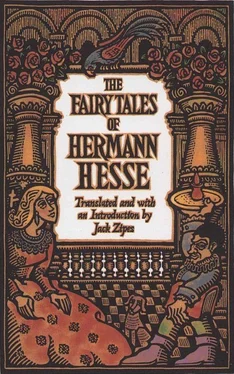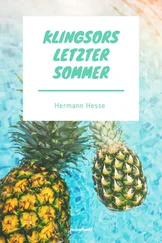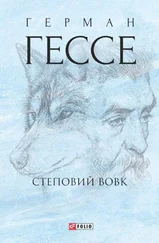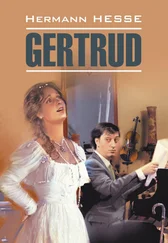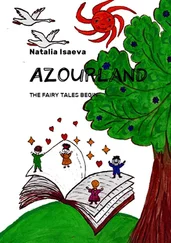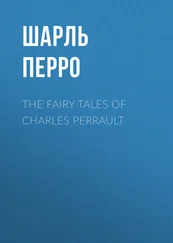Hermann Hesse - The Fairy Tales of Hermann Hesse
Здесь есть возможность читать онлайн «Hermann Hesse - The Fairy Tales of Hermann Hesse» весь текст электронной книги совершенно бесплатно (целиком полную версию без сокращений). В некоторых случаях можно слушать аудио, скачать через торрент в формате fb2 и присутствует краткое содержание. Год выпуска: 1995, ISBN: 1995, Издательство: Bantam Books, Жанр: Классическая проза, Сказка, на английском языке. Описание произведения, (предисловие) а так же отзывы посетителей доступны на портале библиотеки ЛибКат.
- Название:The Fairy Tales of Hermann Hesse
- Автор:
- Издательство:Bantam Books
- Жанр:
- Год:1995
- ISBN:9780553377767
- Рейтинг книги:5 / 5. Голосов: 1
-
Избранное:Добавить в избранное
- Отзывы:
-
Ваша оценка:
- 100
- 1
- 2
- 3
- 4
- 5
The Fairy Tales of Hermann Hesse: краткое содержание, описание и аннотация
Предлагаем к чтению аннотацию, описание, краткое содержание или предисловие (зависит от того, что написал сам автор книги «The Fairy Tales of Hermann Hesse»). Если вы не нашли необходимую информацию о книге — напишите в комментариях, мы постараемся отыскать её.
The Fairy Tales of Hermann Hesse — читать онлайн бесплатно полную книгу (весь текст) целиком
Ниже представлен текст книги, разбитый по страницам. Система сохранения места последней прочитанной страницы, позволяет с удобством читать онлайн бесплатно книгу «The Fairy Tales of Hermann Hesse», без необходимости каждый раз заново искать на чём Вы остановились. Поставьте закладку, и сможете в любой момент перейти на страницу, на которой закончили чтение.
Интервал:
Закладка:
Every phenomenon on earth is symbolic, and each symbol is an open gate through which the soul, if it is ready, can enter into the inner part of the world, where you and I and day and night are all one. Every person encounters the open door here and there in the course of life, and it occurs to everyone at one time or another that everything visible is symbolic and that spirit and eternal life are living behind the symbol. Of course, very few people go through the gate and abandon the beautiful phenomenon of the outside world for the interior reality that they intuit.

It thus appeared to the young boy Anselm that the chalice of his flower was the open, silent question toward which his soul was moving in growing anticipation of a blessed answer. Then the lovely multitude of things drew him away again, in conversations and games with grass and stones, roots, bushes, animals, and all the friendly aspects of the world. He often drifted off and sank into deep contemplation of himself. He would abandon himself to the marvelous features of his body, feel his swallowing with closed eyes, his singing, the strange sensations as he breathed, the feelings and imaginings in his mouth and throat. He also groped there for the path and the gate through which one soul can go to another. With amazement he observed the meaningful and colorful figures that often appeared to him out of the purple darkness when he closed his eyes, with spots and half circles of blue and deep red and bright glassy lines in between. Sometimes Anselm experienced a glad and shocking jolt as he felt the hundreds of intricate connections between eye and ear, smell and taste, felt for beautiful fleeting moments sounds, tones, letters of the alphabet that were related and similar to red and blue, to hard and soft, or he was amazed upon smelling a plant or peeled-off green bark at how strangely close smell and taste were and how often they fused and became one.
All children feel this way, although they do not feel it with the same intensity and sensitivity. And with many of them all of this is already gone, as if it had never existed, even before they begin to learn how to read the alphabet. For others, the mystery of childhood remains close to them for a long time, and they take a remnant and echo of it with them into the days of their white hair and weariness. All children, as long as they still live in the mystery, are continuously occupied in their souls with the only thing that is important, which is themselves and their enigmatic relationship to the world around them. Seekers and wise people return to these preoccupations as they mature. Most people, however, forget and leave forever this inner world of the truly significant very early in their lives. Like lost souls they wander about for their entire lives in the multicolored maze of worries, wishes, and goals, none of which dwells in their innermost being and none of which leads them to their innermost core and home.
The summers and autumns of Anselm’s childhood came softly and went without making a sound. Time and again the snowdrops, violets, lilies, periwinkles, and roses bloomed and withered, beautiful and sumptuous as ever. He experienced it all with them. Flowers and birds spoke to him. Trees and springs listened to him, and he took his first written letters and his first problems with friends in his customary old way to the garden, to his mother, to the bright multicolored stones alongside the flower beds.
But one time a spring arrived that did not sound or smell like all the earlier ones. The blackbird sang, and it was not the old song. The blue iris blossomed, but there were no dreams and no fairy-tale figures wandered in and out along the golden-fenced path of its chalice. The hidden strawberries laughed from their green shadows, and the butterflies glittered and tumbled over the high lilies, but nothing was as it used to be. The boy was concerned with other things, and he had many quarrels with his mother. He himself did not know what the matter was or why it continued to disturb him. He only saw that the world had changed and that the friendships of earlier times had dissolved and left him alone.
A year went by like this, and then another, and Anselm was no longer a child. The brightly colored stones around the flower beds bored him. The flowers were mute, and he stuck the beetles on pins in a box. His soul had taken the long hard detour, and the old joys were vanquished and withered.
The young man rushed impetuously into life, which now seemed to him to have really begun. The world of symbols was blown away and forgotten. New wishes and paths enticed him. An aura of childhood could still be seen in his blue eyes and soft hair. However, he did not appreciate being reminded of it, and he cut his hair short and assumed as bold and worldly a posture as he could. His moods kept changing as he stormed through the scary pubescent years, at times a good student and friend, at other times lonely and shy. During his first youthful drinking bouts, he tended to be wild and boisterous. He had been compelled to leave home and saw it only when he returned on short visits to his mother. He was changed, grown, well dressed. He brought friends with him, brought books with him, always something else, and when he walked through the old garden, it appeared to him to be small and silent as he glanced about distractedly. He no longer read stories in the colorful veins of the stones and leaves. He no longer saw God and eternity dwelling in the mysterious blossoms of the blue iris.
Anselm went away to high school and then college. He returned to his home city with a red cap and then with a yellow one, with fuzz on his upper lip and then with a young beard. He brought books in foreign languages with him, and one time a dog. Soon he carried secret poems in a leather case in his breast pocket, then copies of ancient proverbs, and finally pictures of pretty girls and their letters. He came back from trips to foreign countries and took voyages on large ships across the sea. He returned and was a young teacher, wearing a black hat and dark gloves, and the old neighbors tipped their hats to him as he passed and called him professor, even though he had not yet become one. Once again he returned wearing black clothes, slim and somber, and walked behind the slow hearse upon which his old mother lay in the coffin adorned with flowers. And then he rarely returned.
Now Anselm lived in a big city, where he taught students at the university and was regarded as a famous scholar. He went about, took walks, sat and stood exactly like other people of the world. He wore a fine hat and coat, was serious or friendly, with lively and sometimes tired eyes. He was a gentleman and a scholar, just as he had wanted to become. But now he felt the exact same way that he had felt when his childhood came to an end. All of a sudden he felt the impact of many years sliding by that left him standing strangely alone and discontent in the middle of the world that he had always strived to attain. He was not genuinely happy as a professor. He was not deeply gratified to be greeted by the people of the city and the students who showed him great respect. Everything seemed dull and lifeless. Happiness lay once again far away in the future, and the way toward it seemed hot and dusty and ordinary.
It was during this time that Anselm made frequent visits to the house of a friend whose sister attracted him. He no longer felt at ease running after pretty faces. Here, too, he had changed, and he felt that happiness had to come for him in some special way and did not lie waiting for him behind each and every window. He liked the sister of his friend very much, and he often suspected that he was truly in love with her. But she was an unusual girl. Every one of her moves and words was unique and marked in a certain way, so that it was not always easy to keep pace with her and find the same rhythm. Sometimes in the evening, when Anselm walked back and forth in his lonely apartment and listened attentively to his own footsteps echoing through the empty rooms, he would argue with himself about this woman. She was older than the wife he had desired. She was very peculiar, and it would be difficult to live with her and to pursue his scholarly goals, for she did not like to hear anything about academics. Also, she was not strong and healthy and could not put up with parties and company very well. She preferred most of all to live with flowers and music and to have a book, in quiet solitude. She waited for someone to come to her, and she let the world take its course. Sometimes she was so fragile and sensitive that when anything strange happened to her, she easily burst into tears. Then there were times when she would glow quietly and softly in happy solitude, and anyone who saw this felt how difficult it would be to give something to this strange beautiful woman and to mean something to her. Sometimes Anselm believed that she loved him, and at other times it seemed to him that she did not love anyone. It appeared that she was just tender and friendly with everyone and wanted nothing from the world but to be left in peace. However, he wanted something more from life, and if he were to marry, then there had to be life and excitement and hospitality in his home.
Читать дальшеИнтервал:
Закладка:
Похожие книги на «The Fairy Tales of Hermann Hesse»
Представляем Вашему вниманию похожие книги на «The Fairy Tales of Hermann Hesse» списком для выбора. Мы отобрали схожую по названию и смыслу литературу в надежде предоставить читателям больше вариантов отыскать новые, интересные, ещё непрочитанные произведения.
Обсуждение, отзывы о книге «The Fairy Tales of Hermann Hesse» и просто собственные мнения читателей. Оставьте ваши комментарии, напишите, что Вы думаете о произведении, его смысле или главных героях. Укажите что конкретно понравилось, а что нет, и почему Вы так считаете.
